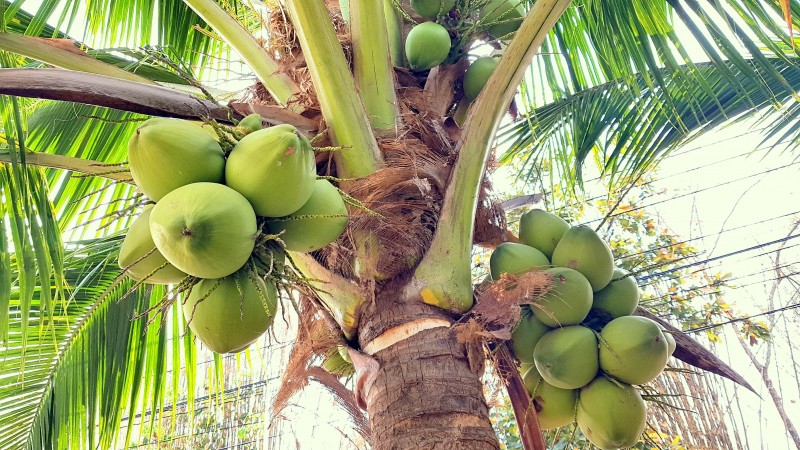Desiccated coconuts: strong demand is driving up prices
November 13, 2024 at 3:01 PM ,
Der AUDITOR

Higher prices
Looking at the coconut oil market in Europe, the experts at T.M. Duché report that prices were strong in the first week of November, reflecting general improvements in vegetable oils. Prices hovered around USD 1,730-1,750/mt CIF Rotterdam and even rose to USD 1,800/mt CIF. Although buyer activity remains limited, the growth in the vegetable oil sector is nevertheless making itself felt and exerting a certain amount of pressure. Palm kernel oil prices also shot up to USD 1,709/mt CIF Rotterdam. The price difference between coconut oil and palm kernel oil is now only around USD 43/mt, which clearly shows the increasing competition. According to T.M. Duché, desiccated coconuts cost between USD 0.83 and USD 1.30/lb FOB and have therefore also become more expensive after a longer phase of price stability.
Volatile oil markets
The Philippines exported a total of 73,350 mt of coconut oil in October, a 29.2% decrease in volume but a 17% increase in export value thanks to higher market prices. Exports of copra meal increased by a whopping 77.6% due to high demand. US coconut oil imports climbed by 78.4% year-on-year to 51,200 mt in August, with the Philippines being the leading supplier at more than 55%. In the USA, buying interest in plant-based products is increasing, and coconut oil in particular is being favoured more and more frequently.
Overall, however, market experts forecast the oil markets to remain volatile for the time being as global demand and supply dynamics continue to change. The coconut industry in the Philippines is being supported by rising prices and demand is high, although potential supply bottlenecks are a problem here.
Growers in Sri Lanka receive support
Growers in Sri Lanka are less optimistic, with annual production set to fall from 3 billion to 2.85 billion coconuts, FreshPlaza reports, citing The Island Online. As the Chairman of the Coconut Development Authority (CDA), Shantha Ranathunga, explained in discussions with The Island Financial Review, the poor fertiliser policies of previous governments are not entirely innocent. Fluctuating exchange rates had also led to farmers neglecting proper tree care for financial reasons, further aggravating the situation. The industry is also struggling with pest infestations and various plant diseases.
However, the impending supply bottlenecks in the Philippines and Indonesia give exporters in Sri Lanka hope that they will have better opportunities on the global market. In the face of rising global demand, the government is already taking measures to support exporters. Among other things, minimum auction prices are being set to prevent the formation of a ‘coconut mafia’. The CDA supports this and grants farmers financial subsidies for the purchase of fertilisers in order to increase yields.
View more
- price chart, desiccated coconuts, Sri Lanka
- price chart, desiccated coconuts, Indonesia
- price chart, desiccated coconuts, Philippines
- price chart, coconut oil, Indonesia
- more price charts





